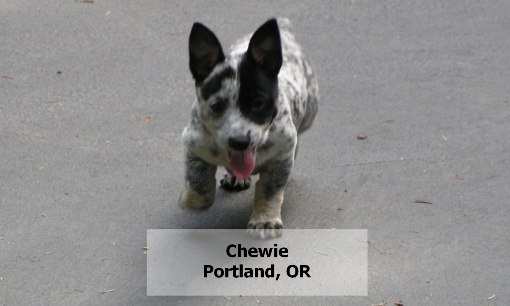General Mills tried a new policy that would bind any consumer that used their website, ‘Liked’ a Facebook page, or even downloaded a coupon into arbitration of their choosing (General Mills’ choosing). After New York Times and Food Safety News outed them – General Mills removed this new policy. Will any pet food try this?
“The change in legal terms, which occurred shortly after a judge refused to dismiss a case brought against the company by consumers in California, made General Mills one of the first, if not the first, major food companies to seek to impose what legal experts call “forced arbitration” on consumers.”
“Although this is the first case I’ve seen of a food company moving in this direction, others will follow — why wouldn’t you?” said Julia Duncan, director of federal programs and an arbitration expert at the American Association for Justice, a trade group representing plaintiff trial lawyers. “It’s essentially trying to protect the company from all accountability, even when it lies, or say, an employee deliberately adds broken glass to a product.”
“Big food companies are concerned about the growing number of consumers filing class-action lawsuits against them over labeling, ingredients and claims of health threats. Almost every major gathering of industry executives has at least one session on fighting litigation.”
“Last year, General Mills paid $8.5 million to settle lawsuits over positive health claims made on the packaging of its Yoplait Yoplus yogurt, saying it did not agree with the plaintiff’s accusations but wanted to end the litigation. In December 2012, it agreed to settle another suit by taking the word “strawberry” off the packaging label for Strawberry Fruit Roll-Ups, which did not contain strawberries.”
“General Mills amended its legal terms after a judge in California on March 26 ruled against its motion to dismiss a case brought by two mothers who contended that the company deceptively marketed its Nature Valley products as “natural” when they contained processed and genetically engineered ingredients.”
However after the General Mills new legal terms were outed by the New York Times and Food Safety News – it seems they had a change of heart. From Food Safety News:
“As has been widely reported, General Mills recently posted a revised set of Legal Terms on our websites. Those terms – and our intentions – were widely misread, causing concern among consumers.
“So we’ve listened – and we’re changing them back to what they were before.
“We rarely have disputes with consumers – and arbitration would have simply streamlined how complaints are handled. Many companies do the same, and we felt it would be helpful.
“But consumers didn’t like it.
“So we’ve reverted back to our prior terms. There’s no mention of arbitration, and the arbitration provisions we had posted were never enforced. Nor will they be. We stipulate for all purposes that our recent Legal Terms have been terminated, that the arbitration provisions are void, and that they are not, and never have been, of any legal effect.
“On behalf of our company and our brands, we would also like to apologize. We’re sorry we even started down this path. And we do hope you’ll accept our apology. We also hope that you’ll continue to download product coupons, talk to us on social media, or look for recipes on our websites.”
Will pet food try this? Only time will tell.
Wishing you and your pet(s) the best,
Susan Thixton
Pet Food Safety Advocate
Author Buyer Beware, Co-Author Dinner PAWsible
TruthaboutPetFood.com
Association for Truth in Pet Food
What’s in Your Pet’s Food?
Is your dog or cat eating risk ingredients? Chinese imports? Petsumer Report tells the ‘rest of the story’ on over 2500 cat foods, dog foods, and pet treats. 30 Day Satisfaction Guarantee. www.PetsumerReport.com

2014 List
Susan’s List of trusted pet foods. Click Here
Have you read Buyer Beware? Click Here
Cooking for pets made easy, Dinner PAWsible
Find Healthy Pet Foods in Your Area Click Here































Peter
April 27, 2014 at 8:31 am
Its likely a certainty that pet food manufacturers will adopt this policy. After all, it is a good policy, that will help protect them. And it will take so little to implement, cost nothing, and the consumer– the potential litigant– will “agree” to the condition generally unaware, simply by trolling the web, perhaps in an instance not even connected to eventual litigation. With pets legally defined as “property,” and regarded as virtually disposable by courts and legal teams (remember how Costco and Diamond Pet Foods identified the value of dogs in “fair market value” terms, that is, what the “owner” paid for them?), pet food manufacturers have and will continue to have a virtual license to steal, injure, sicken, and even kill our animals. WE may regard them as family… but courts don’t and pet food manufacturers happily don’t have to. Binding terms for using a website will likely become standard practice with pet food manufacturers and likely even vendors. Just give the issue a bit of time to settle in…